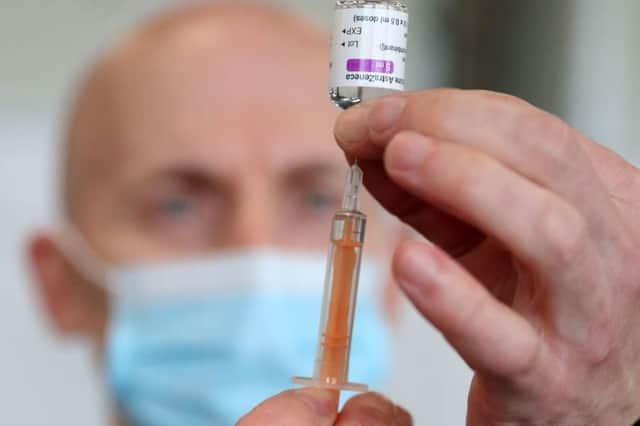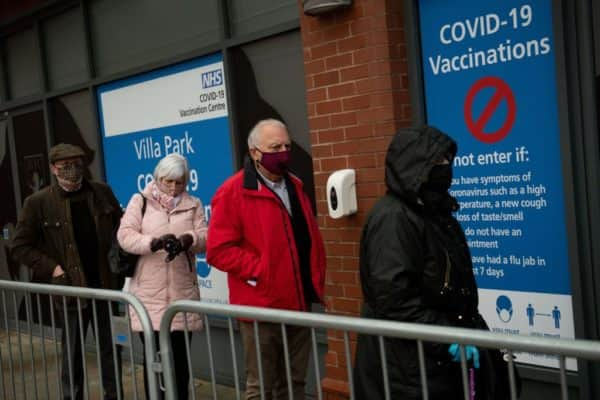Some Covid vaccines are more effective against the South African variant than others - what we know so far


Research suggests that the Oxford/AstraZeneca vaccine offers only limited protection against the South African variant of the disease that is causing concern among experts.
The study also appeared to show that the South African mutations will allow for transmission of the virus even in vaccinated populations. As a result of the findings, South Africa has suspended its rollout of vaccines to healthcare staff.
Advertisement
Hide AdAdvertisement
Hide AdThe country received one million doses of the vaccine at the end of January ahead of a planned rollout to frontline health workers from the middle of February – those plans have been halted.
Vaccines minister Nadhim Zahawi has urged the public to keep faith with the Oxford jab as scientists working on the vaccine raised the prospect of having a booster dose available by the autumn.
But is there a vaccine out there that has proven effective against the South Africa variant?
Here is everything you need to know about it.
How widespread is the South African variant in the UK?
Speaking on BBC Radio 4’s Today programme, health minister Edward Argar said there have been 147 confirmed cases of the South African coronavirus variant in the UK.
Advertisement
Hide AdAdvertisement
Hide AdThough Argar did acknowledge his figures may be “a day or so out”, those numbers mean the variant is a long way off from becoming the dominant strain of the disease.
In the UK, that is still "very much the historic one, the one we’ve been dealing with since last year, and to a large degree the so-called Kent variant,” he added.
Should we be worried?
It's not all bad news, with a spokesperson for the new findings telling the Financial Times – where the study was first reported – the vaccine could still “protect against severe disease… particularly when the dosing interval is optimised to eight to 12 weeks.”
Prof Gilbert said that while the new findings suggest the Oxford/AstraZeneca vaccine may not reduce the total number of cases, there’s “still protection… against deaths, hospitalisations and severe disease.”
Advertisement
Hide AdAdvertisement
Hide Ad“That’s really important for healthcare systems,” she told the Andrew Marr Show, “even if we are having mild and asymptomatic infections, to prevent people going into hospital with Covid would have a major effect.”
The new findings come just days after similar research indicated that the Oxford/AstraZeneca jab is effective at fighting the new UK coronavirus variant, and Professor Robin Shattock, who is leading Covid-19 vaccine research at Imperial College London, has urged caution about the findings.
He told BBC Breakfast the study of just over 2,000 people was a “very small” one, and that of the study participants – who had a mean age of around 31 – it was not yet clear how many had two doses, and at what intervals.
Is there a vaccine for the South African variant?


There is currently no vaccine designed specifically for tackling the South African variant of the virus, but work is underway to create one, with researchers hopeful it will be ready to administer by the autumn.
Advertisement
Hide AdAdvertisement
Hide AdOxford vaccine lead researcher Professor Sarah Gilbert told the BBC’s Andrew Marr Show her team currently has “a version with the South African spike sequence in the works”.
Prof Gilbert says while it is “not quite ready to vaccinate people with yet”, going forward there are “ways of making a vaccine that are very quick to adapt… then it will be very much like working on flu vaccines.”
Indeed, annual vaccines or boosters could be required to combat Covid-19 variants, with Zahawi saying there is “likely” to be a follow-up jab programme later in the year.
Speaking on the Andrew Marr Show, the vaccines minister said there would “probably” be a “booster in the autumn” and then an annual jab “in the way we do with flu vaccinations where you look at what variant of virus is spreading around the world, rapidly produce a variant of vaccine and then begin to vaccinate and protect the nation.”
Which vaccines work best against the South African variant?
Advertisement
Hide AdAdvertisement
Hide AdA vaccine developed by Johnson & Johnson’s pharmaceutical arm Janssen is 66% effective overall at preventing moderate to severe Covid-19 28 days after vaccination, and works across multiple variants of coronavirus, including the South African variant.
Meanwhile, Pfizer said it had tested 16 different mutations in the variants and none had any significant impact on how its vaccine worked.
And Moderna said laboratory tests found that vaccination with its jab produced neutralising antibodies against all key emerging variants, including the South African mutation.
Novavax plans to immediately begin development on a vaccine which specifically targets the South Africa variant.
What about other variants?
Advertisement
Hide AdAdvertisement
Hide AdWhen asked about the Oxford/AstraZeneca Covid jab’s effectiveness against the South African variant, Danny Altmann, professor of immunology at Imperial College London, told Times Radio: “I think we can still win; it’s just got so much tougher again.”
He added: “I think the number of variants that can come out of this spike antigen is finite, and we’re not going to be playing this catch-up game forever. There is an end in sight and there is tweaking to be done, but I think we’ll get there.
“The sort of biggest worry is that it’s not just about South Africa, is it, it’s about our homegrown versions, and the modification to the Kent variant, and the idea that we’ve got to be so on our guard and track and tracing it so carefully that we don’t expand our homegrown version.”
A version of this article originally appeared on our sister title, The Scotsman